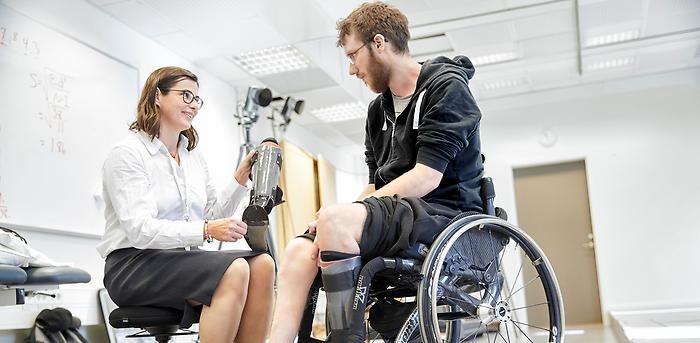MASTech - Master in Assistive Technology

The World Health Organisation (WHO) predicts that the number of individuals requiring assistive devices will rise beyond 2 billion by 2050. Jönköping University’s new master’s programme in assistive technology aims to educate professionals with knowledge and skills to address this need.
Introduction
Assistive devices and technologies are used as a means of maintaining or improving an individual’s function and independence and are often key factors in facilitating participation and overall well-being. The range of assistive devices is vast, and examples include wheelchairs, prostheses, orthoses, hearing aids, visual aids and communication devices.
In order to address the increasing need for assistive technologies in society it will be necessary to develop new sustainable technologies and to improve the manufacturing efficiency and design of current technologies. This requires a unique combination of knowledge and skills from both the medical and engineering sectors.
Purpose
The purpose of this project is to develop a new two-year master’s degree in assistive technology at Jönköping University. The master’s will be targeted towards students who are interested in gaining employment within the assistive technology sector and will focus upon innovative product development and manufacturing of assistive devices for individuals with disabilities. The degree will have a strong multidisciplinary focus and will be conducted as a joint initiative between the School of Health and Welfare and the School of Engineering.
Expected results
The new master’s programme is expected to begin enrolling students in 2020. The programme will comprise of 2 years of full-time study. While the first year of study will be campus based, elements of the second year will be possible to complete online in a distance learning format.
Collaboration partners
- Össur Nordic
- CAMP Scandinavia
- Aktiv Ortopedteknik
- Ortopedtekniska branschrådet
Project duration and financing
Development of the programme is currently underway and is co-funded by the Knowledge Foundation.The programme is planned to start in autumn 2020.

Contact information
If you would like to know more about the project, please contact Nerrolyn Ramstrand, PhD and project co-ordinator.
